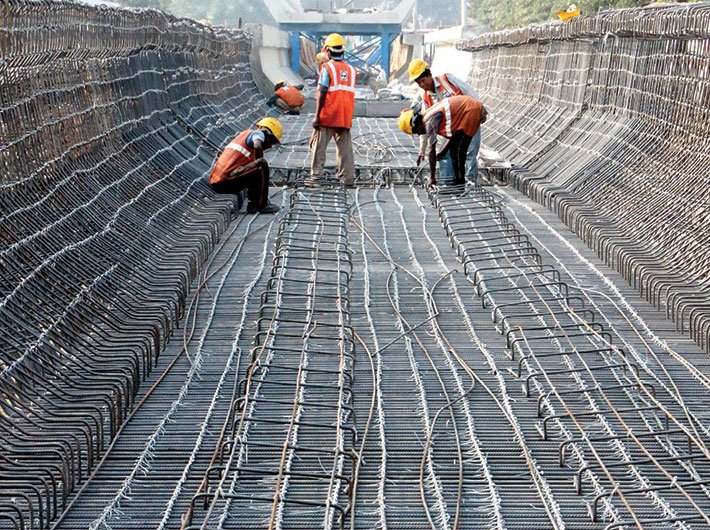A veteran bureaucrat explains how to complete government projects without time and cost overruns
Government projects typically suffer from time overrun and cost overrun. There appears to be no project management discipline, and extension of time and escalation of cost rarely attract the kind of serious attention they should. There is no system of fixation of accountability for these substantial deviations which, as a result, become the norm rather than an exception. Apart from being a reflection of poor work culture it amounts to a scandalous waste of public resources – a pathetic lack of concern for taxpayers’ money. Moreover, nothing paints a more negative view of governance than incomplete projects, like buildings, roads and bridges; these lead to tremendous inconvenience to people and government functioning becomes an object of ridicule.
Investment in infrastructure is a clear determinant of rate of growth of an economy. However, if there are huge delays in implementation of these projects then it leads to a considerable reduction in the rate of return of such projects and the consequent impact on the growth of gross domestic product. It is thus imperative that the highest priority be accorded to completion of projects on time. This necessitates development of a new and different work culture which needs the attention of all those concerned with governance reforms.
I would like to illustrate my point by discussing two projects which were implemented in record time during my tenure as chief secretary of Uttar Pradesh.
We conceived the Lucknow Metro Project in 2014. In the first phase, nine kilometres of metro line were to be constructed and made functional. We started by taking the services of the legendary E Sreedharan as consultant and had a DPR prepared by Delhi Metro. The first step was selection of a managing director and his immediate team of functional directors. The entire selection process was done on merit and we selected the best hands. Tenders for construction work were floated and finalised and the ground breaking ceremony was done in October 2014. At this stage itself, it was decided that the trial run of the metro train shall commence on December 1, 2016. It was indeed a great tribute to the team spirit and project management skills that this was achieved.
Looking at the importance of the project, I started a system of weekly reviews. Each activity was broken into its sub-components and a timeline for it was decided. We started working backwards for all sub-components from its target date of trial run and accordingly decided the time schedule of each activity.
The managing director of Lucknow metro gave a detailed presentation every Monday. Weekly targets were then fixed and monitored every week. The crucial aspect was that decisions were taken across the table, which in normal government functioning would take months of file movement. For instance, if a power utility was coming in the metro alignment and had to be shifted it would normally mean that Lucknow metro writes to the power department, which examines the matter in detail and then gives a cost estimate for the same for Metro to agree. This file movement could well be a matter of a few months. We took these decisions across the table during our weekly reviews. In this way, the necessity to do things fast was impressed upon all. All tenders were finalised in record time. Frequent field visits to oversee the progress and motivate the metro team were undertaken. The net result was that the first train was flagged off for trial run on December 1, as had been visualised.
Similar was the story of the Lucknow-Agra Expressway. A 302 km, eight lane expressway was constructed within 22 months. Land acquisition from 30,000 farmers was done without any litigation or discontent. For each district, a committee under the collector was formed and empowered to take decision regarding compensation after negotiation with farmers. Once again, each and every activity was broken into sub-components and a weekly time period was set for all. At the chief secretary level, I once again monitored the project on a weekly basis and crucial decisions were taken in these meetings, slicing through red tape. The project was completed on time without any cost overrun.
The implementation of both these mega projects on time created a tremendous wave of self-belief among all officers. People were incredulous that this could be achieved by government officers. A tremendous wastage of national resources was avoided through professional execution of the project.
It is imperative to list out the factors that made this possible. These success stories may certainly inspire other projects. The first condition of success is the political will. This ensures that there is no shortage of funds or functionaries for the project. Then, rigorous monitoring and prompt decision-making at the highest level of bureaucracy is required. The project team needs to be selected on merit and the entire team must share the dream of completing the project on time and to ensure excellent quality of implementation. Team spirit is vital – a confident, motivated team taking pride in its efforts is essential.
Faith and trust should flow down the line. It is also important to give autonomy and independence of decision-making to the implementing agency. At no lev-el should there be a vested interest or extraneous considerations. Of course, no project would succeed if detailed planning is not done before undertaking the project. Competent people with tremendous professional skills were chosen as chief executives of both the projects and they were insulated from political interference or bureaucratic obstructionism. The top management has to have broad enough shoulders to take the entire responsibility. Above all, it is the passion and thrill of getting a job done that leads to success.
Ranjan is a former chief secretary of Uttar Pradesh.
(The article appears in the July 16-31, 2017 issue of Governance Now)
